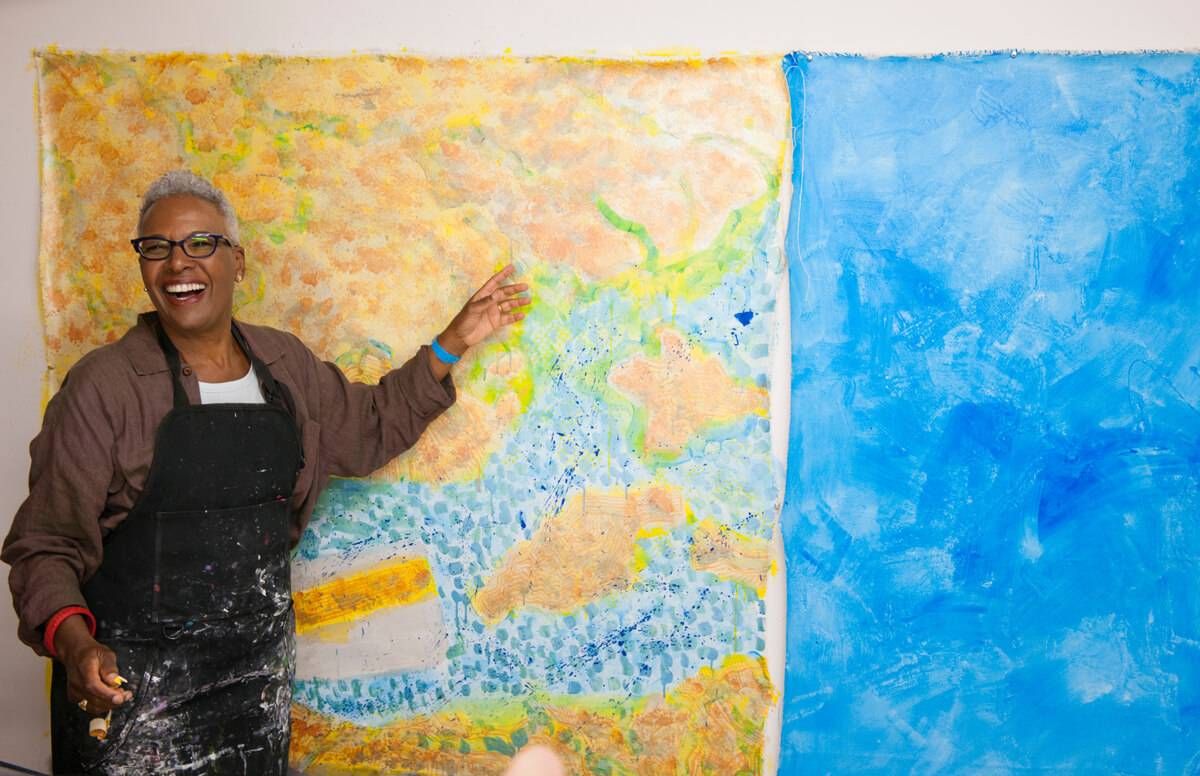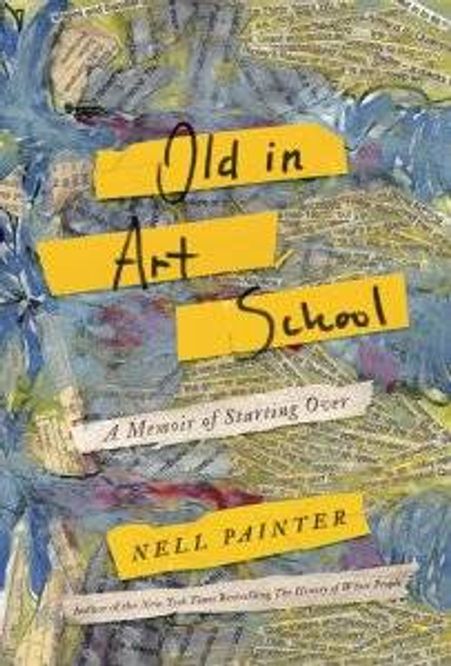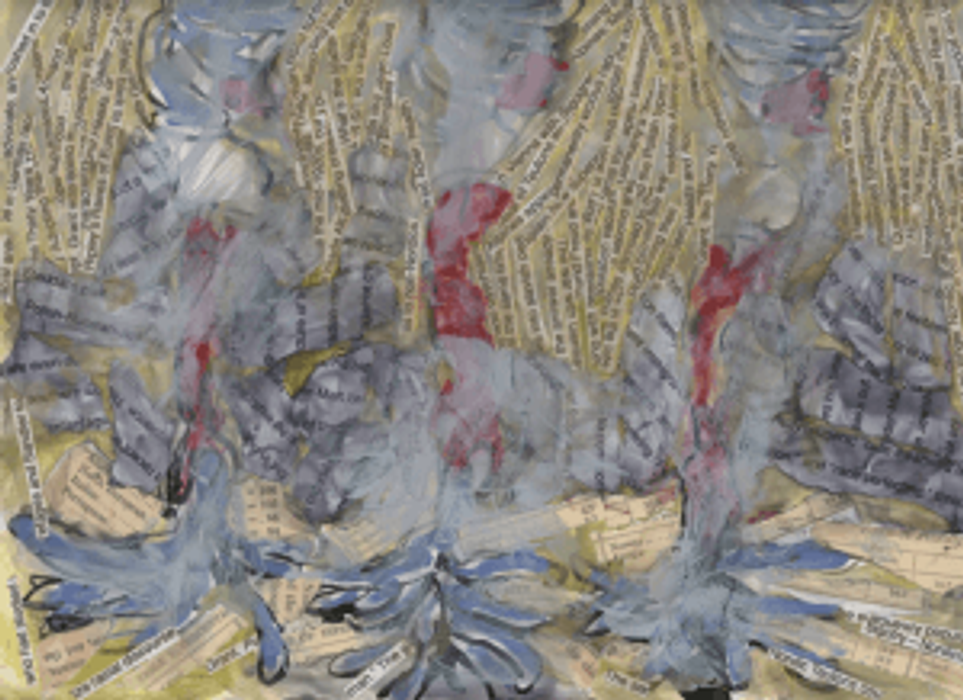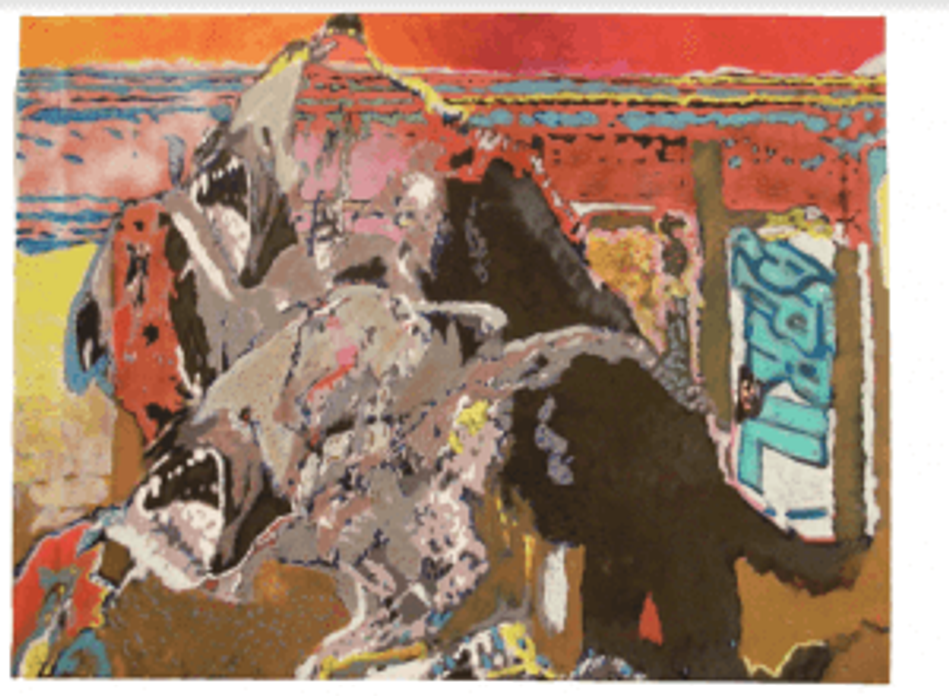She Traded Retirement for Two Degrees in Art
A conversation with Nell Painter, author of 'Old in Art School'
At 64, Nell Painter retired from her highly-celebrated career as a historian and scholar at Princeton University to pursue two college degrees in art. Alongside 18-year-olds, Painter enrolled in Rutgers University's Mason Gross School of the Arts to earn her B.A. and then went on to earn her M.F.A. at the prestigious Rhode Island School of Design.

Painter, now 75, has a new book chronicling her experience going back to school later in life and the personal and academic challenges she faced. Old in Art School: A Memoir of Starting Over is a bestseller on Amazon and listed on Oprah magazine’s "Top Books of the Summer." (You can see some of her artwork on Painter's website, Nellpainter.com.)
Next Avenue recently spoke with Painter about her experience; the following Q & A has been edited for length:
Next Avenue: How was art a part of your life before you decided to go to art school?
Nell Painter: I took drawing classes when I was in high school, and for a little while I was an art major in college at Berkeley, but I was better at other things, namely because I didn’t work at art. I thought 'Oh, if you have talent, that’s all you need.' Which of course it isn't.

In your book, you say that art has the power to stop time, to stop hunger. What does art mean to you today, on a personal level?
It’s just satisfaction and concentration and being able to do whatever my eye and my hand want to do without the sense of there’s a right and wrong way to do this or without 'Oh, here’s the truth you have to respect.' I can do what I want. So, I guess I’d sum it up as freedom.
Why was it important to you to get a formal education in the discipline?
I actually tried just taking classes. I took a pastel and a printmaking class, but they weren’t rigorous enough for me. I just like to work hard and intensely and those sort of 'Sunday painter' classes just weren’t rigorous and intense enough. I also wanted the intellectual surrounding that went with artmaking. And that was not in the incidental classes that I took. So I guess you could say that it was like looking at my old ambition of going deeper, and harder and farther.
You’ve had rigorous academic pursuits in other fields, notably in history. Did your self-discipline and rigor in your study of history offer an advantage in your study of art?
Well, at first, it seemed to hurt. I was not just discouraged from using history, but almost having my hand slapped for turning to historical subject matter or embedding historical meaning in my work. I really do like to have more discursive meaning in my work, even if sometimes the discursive meaning you can’t see because it's abstract.
I’m actually here right now in the Adirondacks and I brought some Lino prints [a type of fine art printmaking] that I made based on a drawing I made of Serena Williams’ midsection as she’s hitting a ball. So, the image is really abstract. If you’re looking for meaning, you might think, 'Oh, maybe it’s a tree, or an octopus.' It really looks like an abstract piece. I’m working with color and collage and cutting it up and pasting it back together. And you would not know that it had anything to do with Serena Williams unless I told you.

You talk often about ageism and the surprise and reactions of your peers, classmates and professors to your age. What was your biggest takeaway from that experience of being seen and thought of as an older woman in a context so often reserved for youth?
Not being seen. This is a common experience of women, starting as they are facing 30 or 40. Realizing that they are no longer seen. That was the hardest part. Because in the academic world, as you get older, you can become more respected and more powerful, but not in art.
Starting at an age like 28, the older you are, you just age out. Being invisible as an older black woman was the hardest thing.
In school, it seemed like you simultaneously wanted to discuss race in your work but also wanted freedom from having to discuss larger issues.
That’s exactly true.
How did you, and how do you still, strike this balance?
I don’t. On the one hand, I really resent that the job of black artists is to explain or protest American racism and American history or be invisible. But, on the other hand, sometimes I want to do that. There is no putting all that together in an easy way. They are in conflict. They remain in conflict.

Your book is very much a celebration of artists from different eras and movements. The reader explores the art world with you as you learn about it in school. Was this book written as an education in art for the reader?
In a way, but I tried to be really careful and say: This is how it looked to me. This is not an art history program for reforming art education. There’s no larger prescription here. It’s part of what I encountered during this period that I went through art school.
And of course, the artists were of crucial importance, and sometimes the way that I had seen them changed over time. For instance, I speak of Ben Shahn, who was one of my favorites when I was young and who has fallen out of the art world. I see him as a very 20th century artist now. I see him as part of art history, whereas when I was younger, he was just how art is. So, things change.
One of the reasons your book strikes a chord is that many people have a passion they carry with them through life but never devote themselves fully to it, especially if they think they are too old or that their time has passed. What advice do you have for them?
Well, my advice has two parts. One is to make sure that all the rest of your life is in order. That your health is taken care of. That the people that depend on you — your children, your grandchildren, your parents — are in the best possible situation they can be, and that your financial situation is stable. And the second thing is that I think people should get an education. They should take classes. They should not assume that everything can come from within. They should learn the history and the culture of whatever it is they are pursuing. For me, that was a source of great pleasure, but I also think that intellectual grounding and skills really improved my art.

